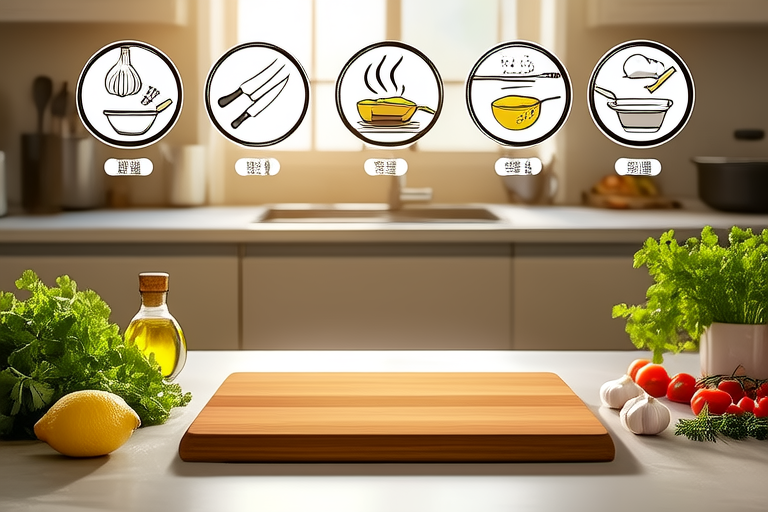Master These Top 7 Cooking Hacks for Beginners to Impress Every Dinner Guest
Introduction: Why Cooking Hacks Matter
Cooking is both an art and a science, but it doesn’t have to be intimidating. Whether you’re a novice in the kitchen or looking to refine your skills, mastering a few key cooking hacks can make all the difference. Not only will these tips help you prepare meals faster and more efficiently, but they’ll also allow you to impress your dinner guests with your culinary prowess. From simple seasoning techniques to clever storage solutions, these hacks will elevate your cooking game.
1. Perfect Your Knife Skills
One of the most important aspects of cooking is proper knife technique. A sharp knife not only makes cutting easier but also safer. Here’s how to ensure your knives are always in top condition:
Keep Knives Sharp
Dull knives require more force, which can lead to accidents. Invest in a good sharpening stone or honing rod. Honing is different from sharpening; it realigns the blade rather than reshaping it. Do this before each use for best results.
Practice Cutting Techniques
Learning basic cuts like dicing, julienning, and mincing can transform your dishes. For example, finely diced vegetables cook more evenly and add texture to soups and stews. Start by practicing on softer fruits and vegetables like tomatoes or cucumbers.
Use the Right Tools
A chef’s knife is essential, but don’t overlook smaller tools like paring knives for precision tasks. Always cut away from yourself and keep your fingers curled under to avoid accidents.
2. Seasoning Secrets for Flavorful Dishes
Seasoning is where many cooks fall short. Properly seasoning your food can take a dish from bland to spectacular. Here are some tips to enhance flavors:
Salt Early and Often
Salt enhances natural flavors. Add salt early in the cooking process to allow it to penetrate the food. However, taste as you go and adjust according to personal preference.
Balance Acids
Acidic ingredients like lemon juice, vinegar, or wine can brighten flavors. Try adding a splash of balsamic vinegar to a vinaigrette or a squeeze of lime to grilled fish. Be cautious not to overpower the dish.
Experiment with Herbs and Spices
Fresh herbs can bring a dish alive, while spices offer depth. Consider experimenting with different combinations. For instance, try using smoked paprika instead of regular paprika for a richer flavor profile.
3. Efficient Food Storage Solutions
Proper storage is crucial for maintaining freshness and preventing waste. Here are some smart storage tips:
Freeze Fresh Herbs
To preserve fresh herbs, wash them thoroughly, pat them dry, and wrap them in paper towels. Place the bundle in a resealable plastic bag and freeze. When needed, simply snip off what you need directly from the frozen bunch.
Extend Vegetable Life
Many vegetables last longer when stored in the refrigerator with a damp paper towel. For example, carrots, celery, and green beans should be wrapped to prevent moisture loss. Potatoes and onions should be kept in a cool, dark place outside the fridge.
Prevent Bread Staling
Wrap bread tightly in plastic wrap or store it in an airtight container. If you find your bread going stale too quickly, consider freezing it. Thaw slices at room temperature for a fresher taste.
4. Quick and Easy Cooking Methods
Time is often our biggest constraint in the kitchen. These quick methods will help you prepare delicious meals even on busy nights:
Sheet Pan Dinners
Sheet pan dinners are a great way to cook multiple items simultaneously. Simply line a baking sheet with parchment paper, arrange proteins and vegetables, drizzle with oil, and roast at 400°F (200°C) for about 20 minutes. This method is versatile and reduces cleanup time.
One-Pot Meals
Cooking everything in one pot minimizes dishes and maximizes flavor. Popular options include stir-fries, pasta dishes, and risottos. Choose recipes that involve layering ingredients to build complexity.
Sous Vide Basics
Sous vide cooking involves sealing food in a vacuum-sealed bag and immersing it in a water bath at a precise temperature. This method ensures perfectly cooked proteins every time. You can start with simple preparations like sous vide eggs or chicken breasts.
5. Cleaning Hacks to Simplify Kitchen Maintenance
A clean kitchen is a happy kitchen. Here are some cleaning hacks to streamline your post-meal routine:
Deglaze Pans
Instead of scrubbing burnt-on bits from pans, deglaze them with liquid. Pour in a little water, broth, or wine, then simmer to dissolve any stuck-on food. Scrape up the flavorful remnants and incorporate them into your dish.
Clean Coffee Makers
Coffee makers can accumulate mineral deposits over time. To clean yours, mix equal parts water and white vinegar in the reservoir, run a brew cycle, and then repeat with fresh water.
Organize Drawer Space
Drawer organizers can help keep utensils and gadgets tidy. Label sections for specific types of tools to make finding what you need quicker and easier.
Practical Tips and Actionable Steps
- Sharpen your knives regularly.
- Taste and season your food frequently.
- Store herbs and vegetables properly.
- Experiment with sheet pan dinners and one-pot meals.
- Clean your kitchen efficiently after each meal.
Conclusion: Elevate Your Cooking Game
By incorporating these top 7 cooking hacks into your routine, you’ll not only save time and reduce stress but also create meals that wow your dinner guests. Remember, cooking is about experimentation and practice. Don’t be afraid to try new techniques and ingredients. With consistent effort, you’ll soon be confident enough to host your own dinner parties and leave everyone impressed.
Happy cooking!
